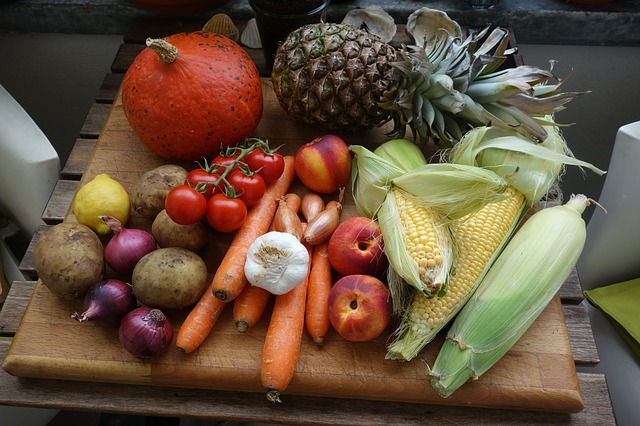
There are many important nutrients in fruits and vegetables. They also contain a lot of water. That’s why they’re good for your health. In a statement, the German Society for Nutrition (DGE) points out that a diet with a high proportion of plant-based foods not only keeps the body healthy but can also prevent diseases.
Vitamins, minerals, and trace elements
People cannot live without vitamins, minerals, and trace elements. They are necessary for the build-up of cells, blood cells, bones, teeth. And they perform important tasks in metabolism and in the interaction of nerves and muscles. Vitamin A, for example, is important for vision, vitamin D for calcium intake, and healthy bones. Minerals such as calcium, sodium, potassium, and magnesium also have important functions in the body. The body needs only small amounts of trace elements (also called microelements) but is very important for the various functions of the body. Important trace elements are, for example, iron as a component of red blood cells and iodine for the functions of the thyroid gland.
Because the human body cannot produce vitamins, minerals, and trace elements on its own, these essentials must then be absorbed through food which is usually found in vegetables and fruits rich in vitamins and minerals.
Roughage
Fiber is found almost exclusively in plant-based foods. The plant fibers are not digested by humans or only partially. High-fiber foods have a long saturation effect, making it easier to maintain or lower body weight. There are many ways to lose your body fat naturally such as exercising, going to the gym at least three times per week, and eating a healthy and balanced diet.. LeanBean are among the natural fat burning supplements because it contains Glucomannan, a Konjac fiber that helps curb the appetite.
In addition, they stimulate intestinal activity and thereby promote digestion. Complaints such as constipation, hemorrhoids, and diverticulosis can thus be prevented. In addition, a high intake of fiber lowers the cholesterol concentration in the blood and has a beneficial effect on blood sugar levels. A high intake of fiber can help reduce the risk of obesity, high blood pressure, heart attack, type 2 diabetes mellitus, colorectal cancer, and fat metabolism disorders. The German Society for Nutrition, therefore, recommends 30 grams of fiber per day as a minimum for adolescents and adults.
Secondary plant substances
Fruits and vegetables are colorful, they taste and smell good. The so-called phytochemicals contribute to this. It is only in recent years that scientists have recognized their anti-inflammatory and antibacterial effects. They also likely reduce the risk of cardiovascular and certain cancers.
Around a hundred thousand phytochemicals are known, including polyphenols. Polyphenols are naturally present in plants. They are not vital nutrients but have antioxidant properties. A subset of polyphenols is the flavonoids, which are responsible for the red, blue, light yellow, and violet color of many vegetables and fruit. They are contained, for example, in apples, cherries, plums, berry fruit, kale, eggplant, and green tea.
Caution with raw sprouts and seedlings
Fresh sprouts and seedlings are high in fiber, providing vitamins and protein. They are particularly popular as an ingredient in salads. However, they can be contaminated with bacteria. Eating sprouts and seedlings raw is therefore not entirely recommended, according to the Bavarian Consumer Centre. “It is possible that the seeds are already contaminated in the countries of origin. Germs can also grow during production and storage,” explains Sabine Hülsmann from the Bavarian VZ.
Store fruit and vegetables properly
The longer fruit and vegetables are, the higher the vitamin loss. It also loses moisture, which has a negative effect on the quality of the food. To counteract this process and to delay the spoiling of the product as much as possible, you should consider the following during storage:
- Cool storage temperature
- High humidity
- Regular air exchange
- Dark and frost-proof
- Avoidance of the ripening gas ethylene



